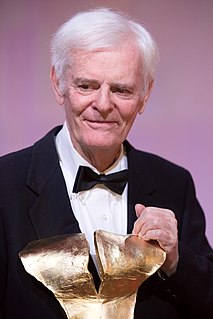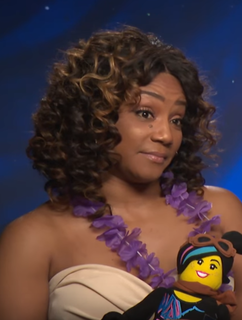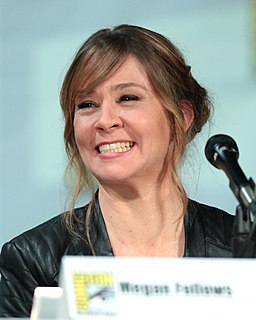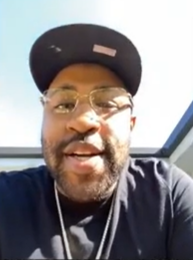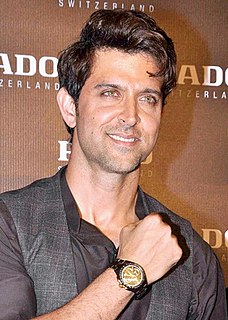A Quote by Luca Guadagnino
As a director, what matters is how you penetrate the soul of the person in front of the camera and let the actor blur the boundaries between the character and the person themselves. In order to achieve that, I try to make people feel at ease, to be mindless of problems and be skinless and give everything to the camera.
Related Quotes
I have received the digital camera as a blessing. It has really changed my life as a filmmaker, because I don't use my camera anymore as a camera. I don't feel it as a camera. I feel it as a friend, as something that doesn't make an impression on people, that doesn't make them feel uncomfortable, and that is completely forgotten in my way of approaching life and people and film.
I really trust the authenticity of real people and my job is to get them to be themselves in front of the camera. Often what happens is, you'll get a newcomer in front of the camera and they'll freeze up or they imitate actors or other performances that they've admired and so they stop becoming themselves. And so my job as the director is just to always return them to what I first saw in them, which was simply an uncensored human being.
I always feel like when I work with people, I work with everybody - from the person that's working the camera to the person that's running the water to the person that's putting the clothes on me, the person that's combing my hair, my makeup, the person that's like, 'You gotta sign these papers.' I try to hang out with everybody.
This is going to sound crazy, especially in America where there is a total inflation of the word "love," but in a sense you have to love the people in front of the camera. There has to be trust between the one who is behind the camera and the people on the other side, so that they can relax. They have to feel they are safe, and that way they don't have to pretend just because they are scared.
And as a director, you constantly try to solve problems, so you have to focus on that. You take away all the other parts. Of course, when the shot finishes, you remember that you have Robert De Niro in front of you. But when you're shooting, you just see a character in front of you, and an actor, and you try to search for very truthful moments. That's what obsesses you.
When I'm not wearing makeup, when I'm not in front of the camera, I can be just Hrithik. I can sit with my watchman or with the spot boy and chat with him. I do that. Which is why I am able to differentiate between the person I am and the persona that is projected. It's not the person people are crazy about, it's the persona, it's the magic of the movies and you have to understand that.
If you're a certain type of actor, then eventually stepping into a director's shoes is a natural transition. I've always been the actor who's very focused on the narrative, where my character is in the story, and how I can benefit the story. I've always had a technical aspect of what the lens is, how the camera is going to move, how I can feed the information the director applies within that move. If you're that type of actor, narrative-based, technically proficient, the next step is actually not that far.




